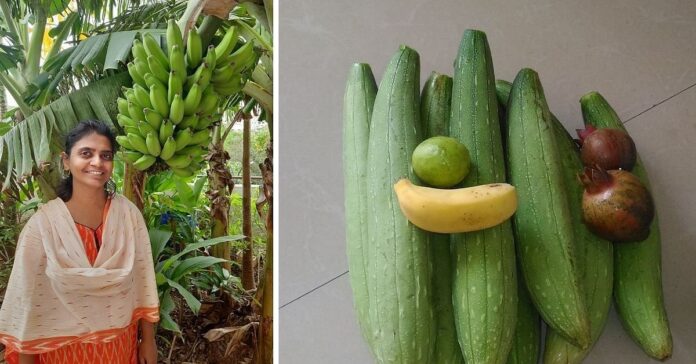
No refrigerator, no AC at home: Here’s How I Cut My Monthly LPG Use in Half With Solar Cooking
Date:

Share post:
Pallavi, who is from Shirasgaon in Maharashtra’s Sangli district, earned a bachelor’s degree in computer science in 2003 and spent six years working for tech firms. Her concentration has been on raising her two kids, now 10 and 15, and introducing them to her origins — a toxin-free, agro-based living — since she left the corporate sector for personal purposes.
“People are often surprised by how we live, but my spouse and I come from farming families and are used to making environmentally friendly decisions. It hasn’t been tough for us, and so it doesn’t have to be difficult for anybody else. For example, one can easily live without the need for a refrigerator, use natural cleansers instead of toxic ones, and only buy organic produce. The courage to adjust our small habits is what will make the biggest effect.”

Pallavi’s home garden is filled with a variety of veggies, fruits, and herbal medicines. Fruit trees like banana, papaya, and pomegranate grow there, as do seasonal vegetables like brinjal, bottle gourd, and tomato, as well as spices like ginger and turmeric. “I concentrate on cultivating veggies that are native to the area. We rarely buy packaged foods, and if we do, we go straight to organic producers and buy small quantities,” she explains.
Pallavi does not have access to an air conditioner or a refrigerator. She claims that her family has never needed one because the natural flow of air in her home is adequate due to proper ventilation. She also cooks with a box-style solar cooker, which consists of an insulating square box with a glass lid on the frying tray and a mirror just on the bottom. The heat released by a blackened surface cooks the food placed in metal pots.
“Our cylinder used to last about two months, but now I save 15 days’ worth of gas and half the labour by using a solar cooker.” The food is cooked at a constant temperature and does not need to be stirred constantly. The only disadvantage to consider is the need to arrange meals ahead of time. For example, if I wanted to make PuranPoli, I’d have to prepare the dal today then finish the meal in the morning the next day. Each dinner takes around three to four hours to prepare, but solar cooking does not necessitate continual supervision, so I may run other errands in the meanwhile,” she explains.
Pallavi goes on to say that while the solar cooker can’t create chapatis or fry items, it can make spice combinations like sambar masala and various spices, as well as foods like dhokla, nankhatai, pizzas, as well as a cake.
She has a flair for preparing accompaniments like sauce, gulkand, papaya tutti-frutti, and other chutneys and pickles that don’t include any dangerous chemical preservatives using materials from her own garden.
Agro-based cleansers produced at home

Most commercial cleaning solutions contain dangerous substances like ammonia and bleach, as well as pollutants like volatile organic compounds, which can be released. “Even ‘green’ products may not be biodegradable and carry a range of health hazards,” adds Pallavi, who makes soap, shampoo, dishwashing, detergent, and floor cleaners for her home with natural materials.
She also says she rarely throws out fruit and vegetable scraps in her kitchen and instead composts them to create bio-enzymes, which can be used as a cleanser and organic fertilizers.
Pallavi has started a weekly series on her YouTube channel called ‘Cooking Under the Sun,’ which features how-to videos on how to make snacks with a solar cooker. She also creates instructions for doing homemade cleaning, and her version of a DIY Ayurveda soap has over 21,000 views.
“Strangers who have begun using bio-enzymes as cleansers have given me a lot of positive comments.” Two women recently informed me that they have begun to make money by selling handmade soaps created from my formula and that others have been able to resolve long-standing dental issues by using our organic dantRanjan. “I hope that as our message spreads, people will cease using chemical items entirely, or at least at home,” she says.
